Through Their Eyes: COVID-19 Chronicles with David Kweyu
This post is part of a new series by The Water Project meant to highlight the perspectives and experiences of the people we serve and how the COVID-19 pandemic is impacting them. We invite you to read more of their stories here.
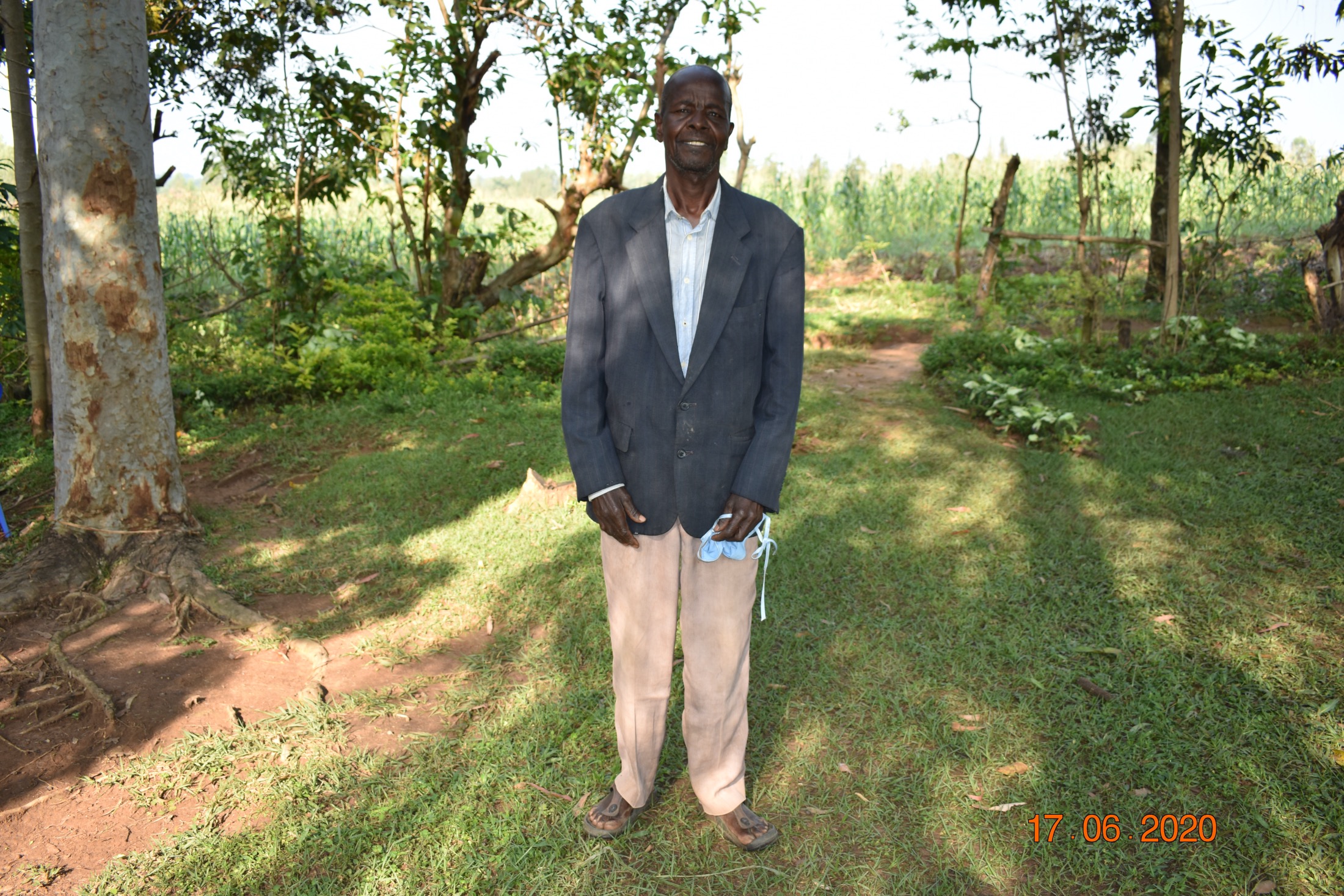
Mr. David Kweyu
David Kweyu is a 65-year-old farmer who lives in the village of Eshiakhulo in Western Kenya. David relies on Kweyu Spring for his daily water needs and serves as a member of the spring’s Water User Committee to help maintain and manage the water point. During our most recent visit To Eshiakhulo, we found the spring to be in good shape and functioning well.
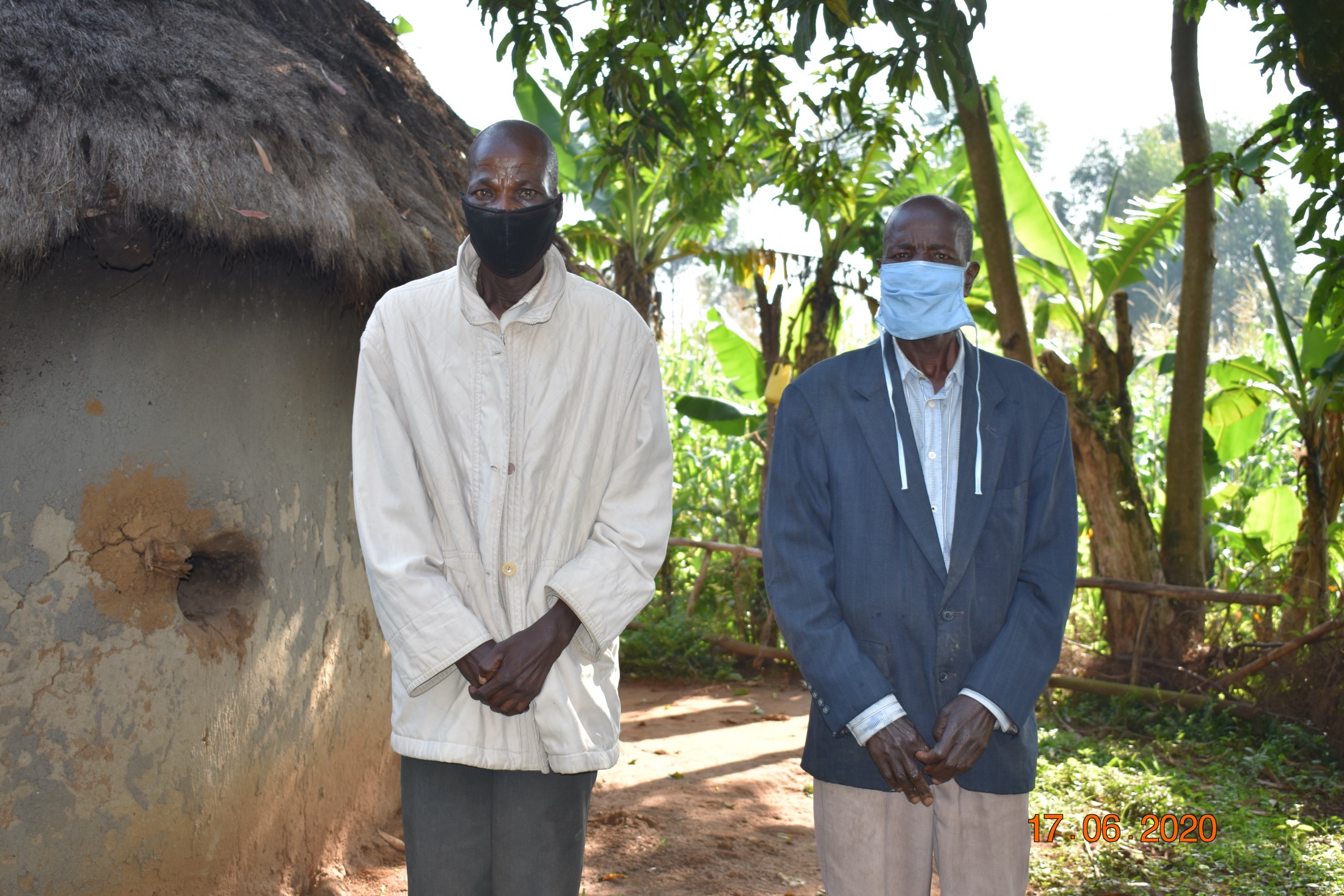
David (right) stands with the Chair of the Water User Committee for Kweyu Spring.
To date, there have been no reported or confirmed cases of COVID-19 in Eshiakhulo. After recently completing a COVID-19 sensitization and prevention training with David’s community (see the report below!), we wanted to hear how the pandemic has affected David personally.
The following interview was conducted outside David’s home by our area Team Leader Emmah Nambuye Wekesa. Social distancing and other precautions were observed to keep both Emmah and David safe. Questions and answers have been edited for clarity.
Since the outbreak of COVID-19 in your country, has fetching water changed for you because of restrictions, new rules, or your concerns about the virus?
“Oh, yes! I do fetch water for my cows and goats, and I ensure that there is soap at the water point for people to use whenever I go to fetch water. We are social distancing whenever we are at the water point. We are also avoiding crowding at all times and wearing masks which should cover the mouth and the nose always. Those are restrictions that are very new to me, personally.”
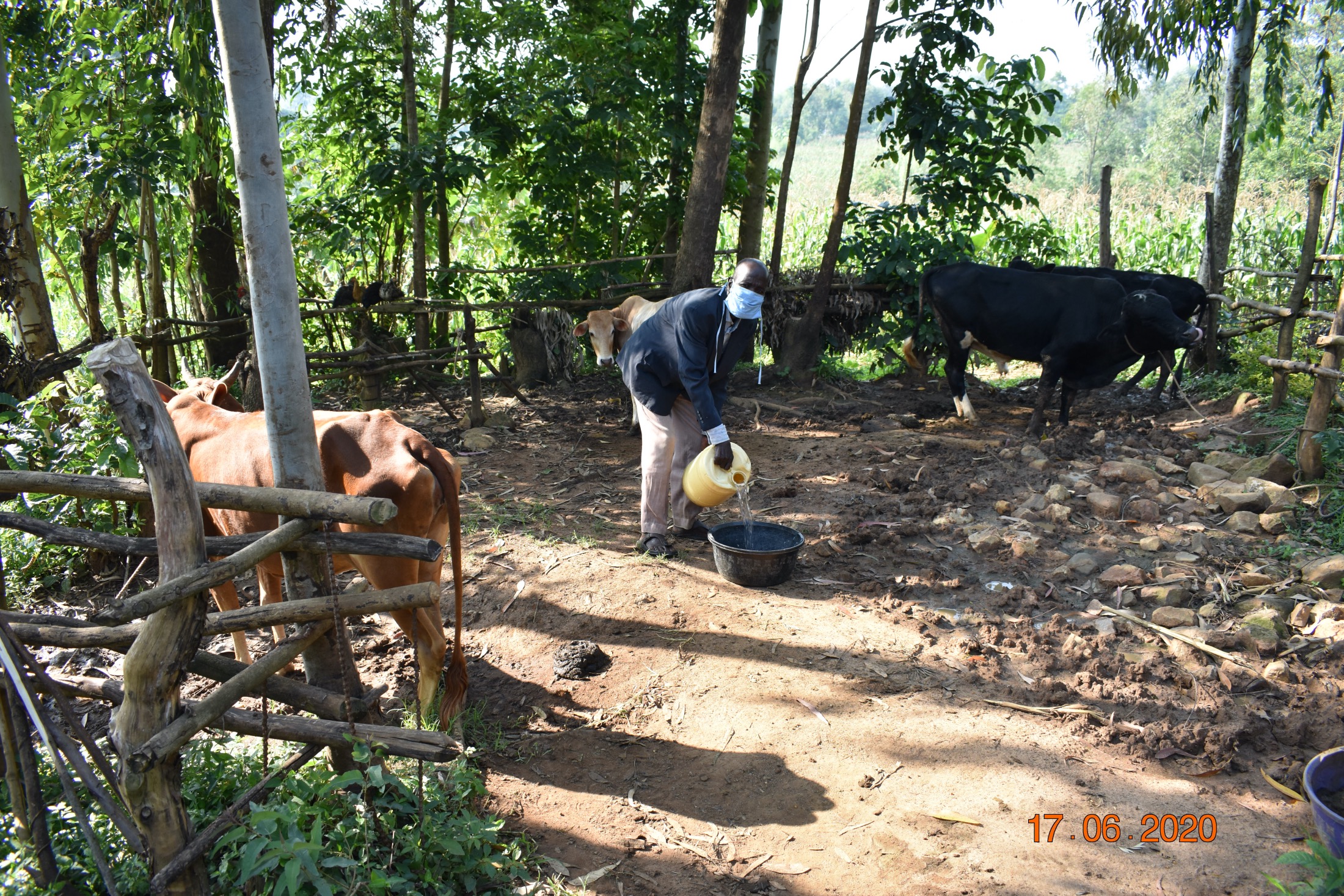
David quenches his animals’ thirst using water from Kweyu Spring.
What is one thing that has changed in your community since the protection of Kweyu Spring?
“Before the project implementation, the spring water was contaminated, and we would become sick more often with stomach conditions like typhoid and amoeba. I can’t recall when last I was treated of those ailments. Thank you for providing safe and clean water for us to use as a community.”
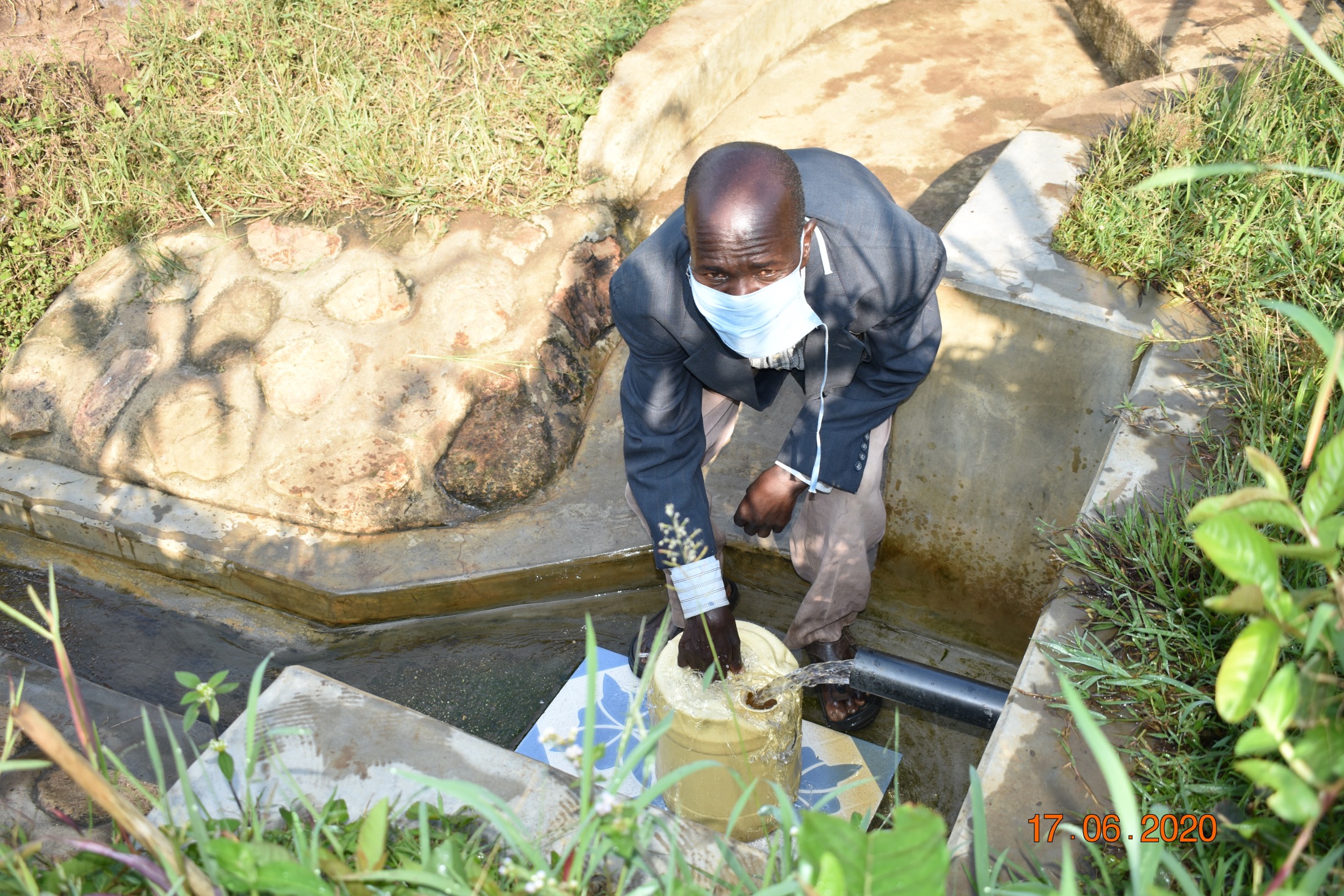
David fetches water from Kweyu Spring.
How has having a clean water point helped you through the pandemic so far?
“I am using clean water for drinking and washing without worries, even if the pandemic is in the country. I am happy that the virus does not affect the water, so I drink it happily.”
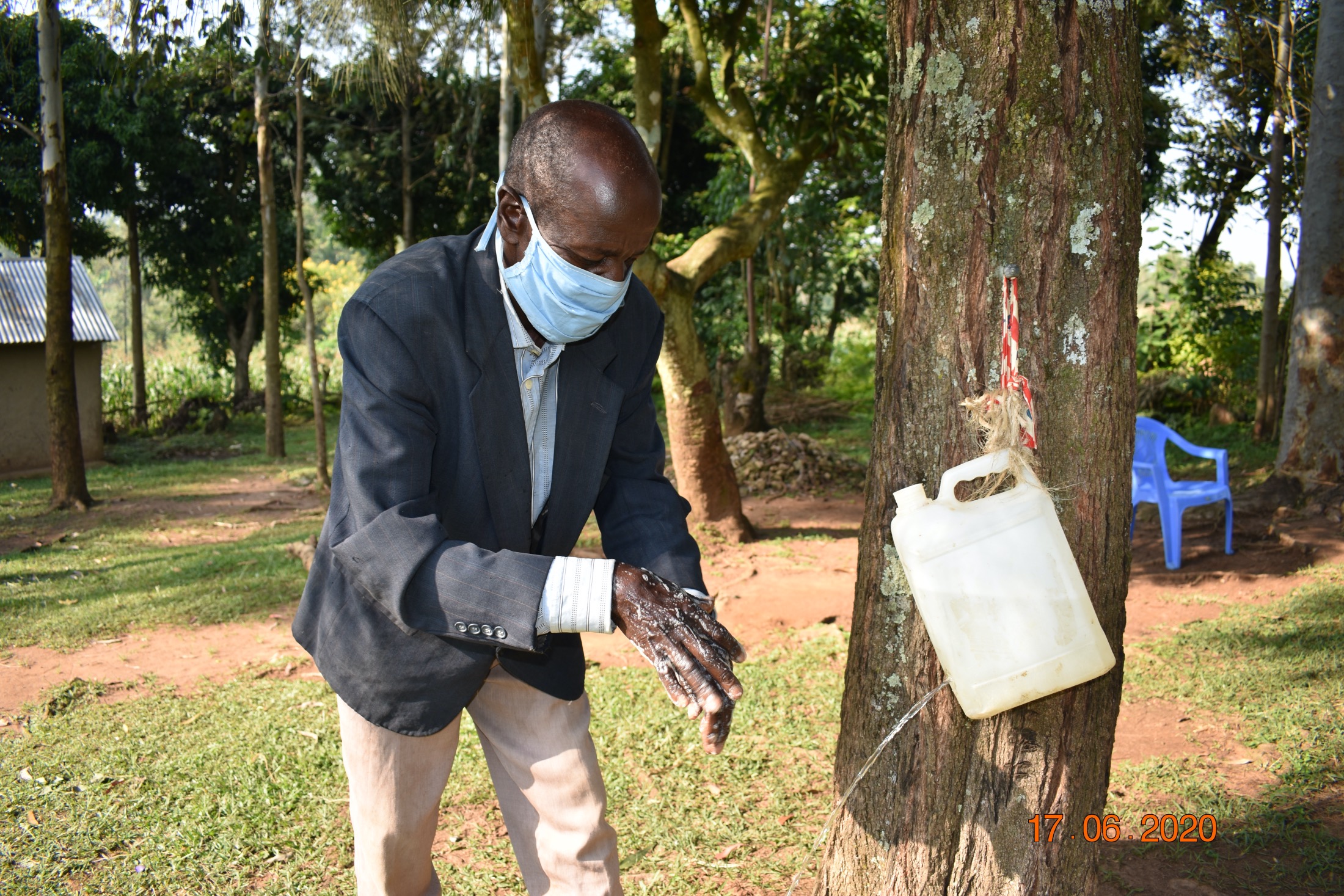
David washes his hands using the leaky tin handwashing station he installed outside his home.
How has COVID-19 impacted your family?
“COVID-19 has really affected my family and me. I have a son who was working in Nairobi, and when the pandemic struck, he lost his job since he was doing manual jobs. Then, the lockdown prevented his travel back to the village. I feel bad that my son is struggling, yet he is far away, and I do not have resources to support him from here.”

David stands with some of the members of his family currently at home with him.
“The school-going children are home because the schools have been shut down, so their eating habits have changed. They are eating a lot, and hence it is expensive to feed them. I am afraid for them and do not want them to move out of the homestead since they can be infected. Yet I cannot send them to visit relatives due to cross-country travel restrictions.”
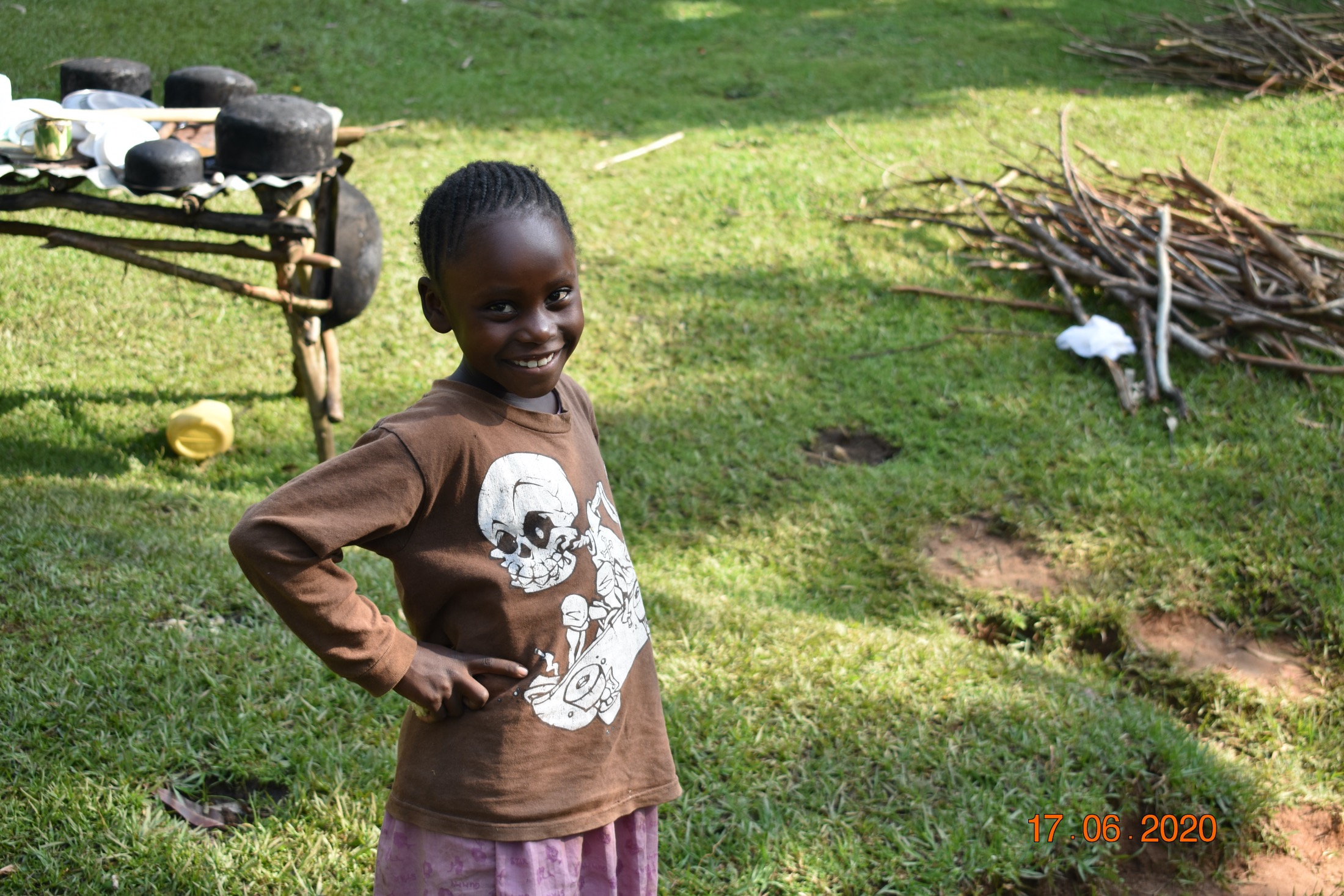
One of the youngest Kweyu children strikes a pose at home.
What other challenges are you experiencing due to the COVID-19 pandemic?
“Economically, it has become very difficult since I would engage in different income-generating activities. I used to travel to see some of my children who are married, and now I cannot. Curfew hours have changed my lifestyle; I always have to be careful to come back home early to avoid being arrested by security. My wife is now forced to go to the market to sell vegetables so that we can earn an extra coin to assist the family – something she never used to do.”
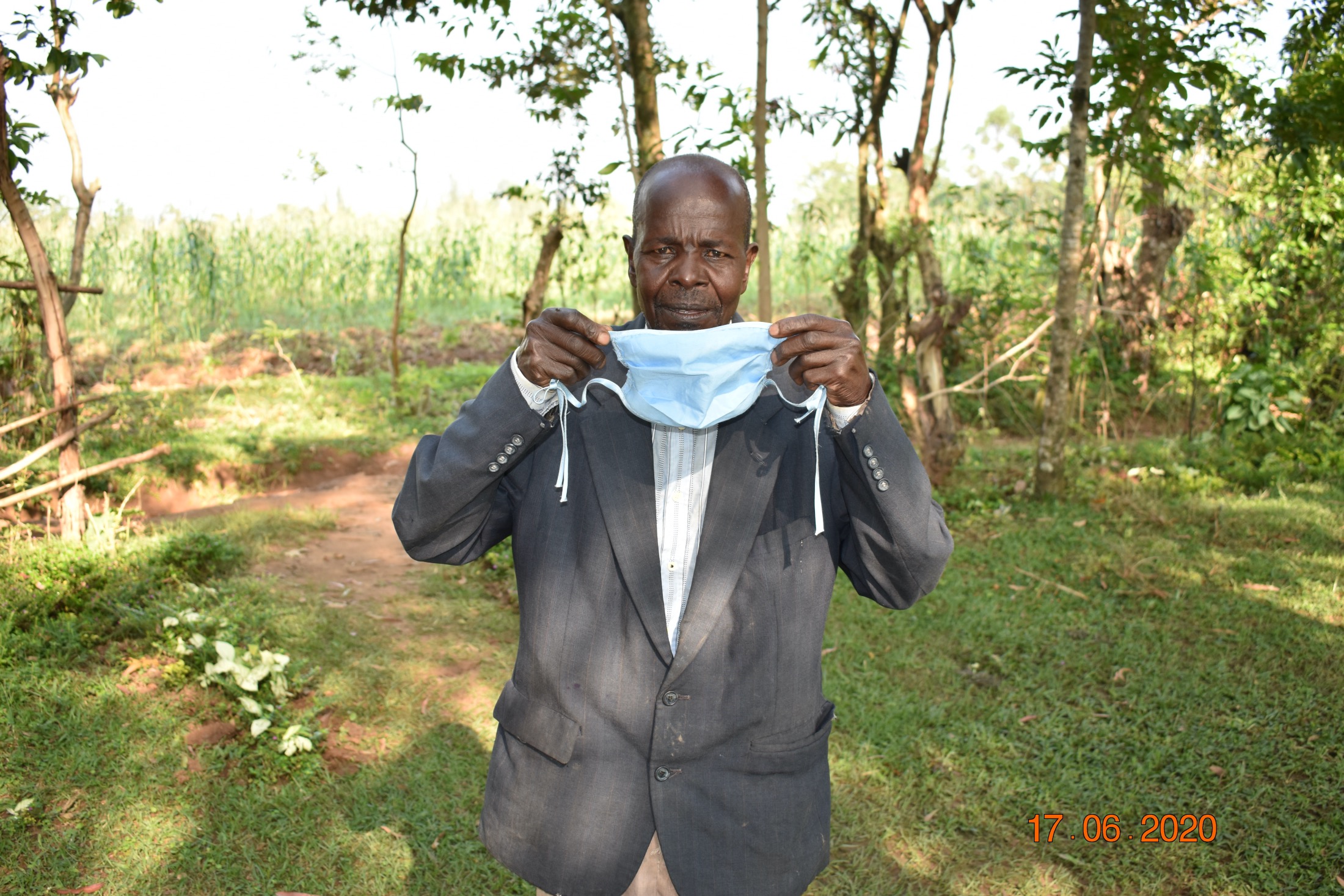
David shows his mask.
What hygiene and sanitation steps have you and your community took to stop the spread of the virus?
“We are handwashing with soap and running water as many times as possible at home and the water point. We are wearing masks whenever we leave the compound or when we are with more than 1 person. We are keeping social distancing at all times outside the home. And we are avoiding crowds and social gatherings – no more shaking of hands, and sneezing under the armpit.”

David puts on his mask.
What restriction(s) were you most excited to see lifted or changed already in your area?
“The new hotel operating hours being moved up to 7.30 am will allow small traders to start earning income little by little. The curfew hour changes from 7:00 pm – 5:00 am to new hours of 9:00 pm – 4:00 am. And businesses are opening and getting back to normalcy.”
What restriction are you still looking forward to being lifted?
“Employees are going back to work so that my son in Nairobi can start fending for himself. And if not that, then the Nairobi lockdown being lifted so that he can come home.”
From where do you get information on the Coronavirus?
“Radio, television, word of mouth, loudspeaker/megaphone announcements, The Water Project training, newspaper, and during burials. The administration normally sends a representative to talk to us at burials about COVID-19 restrictions and rules.”
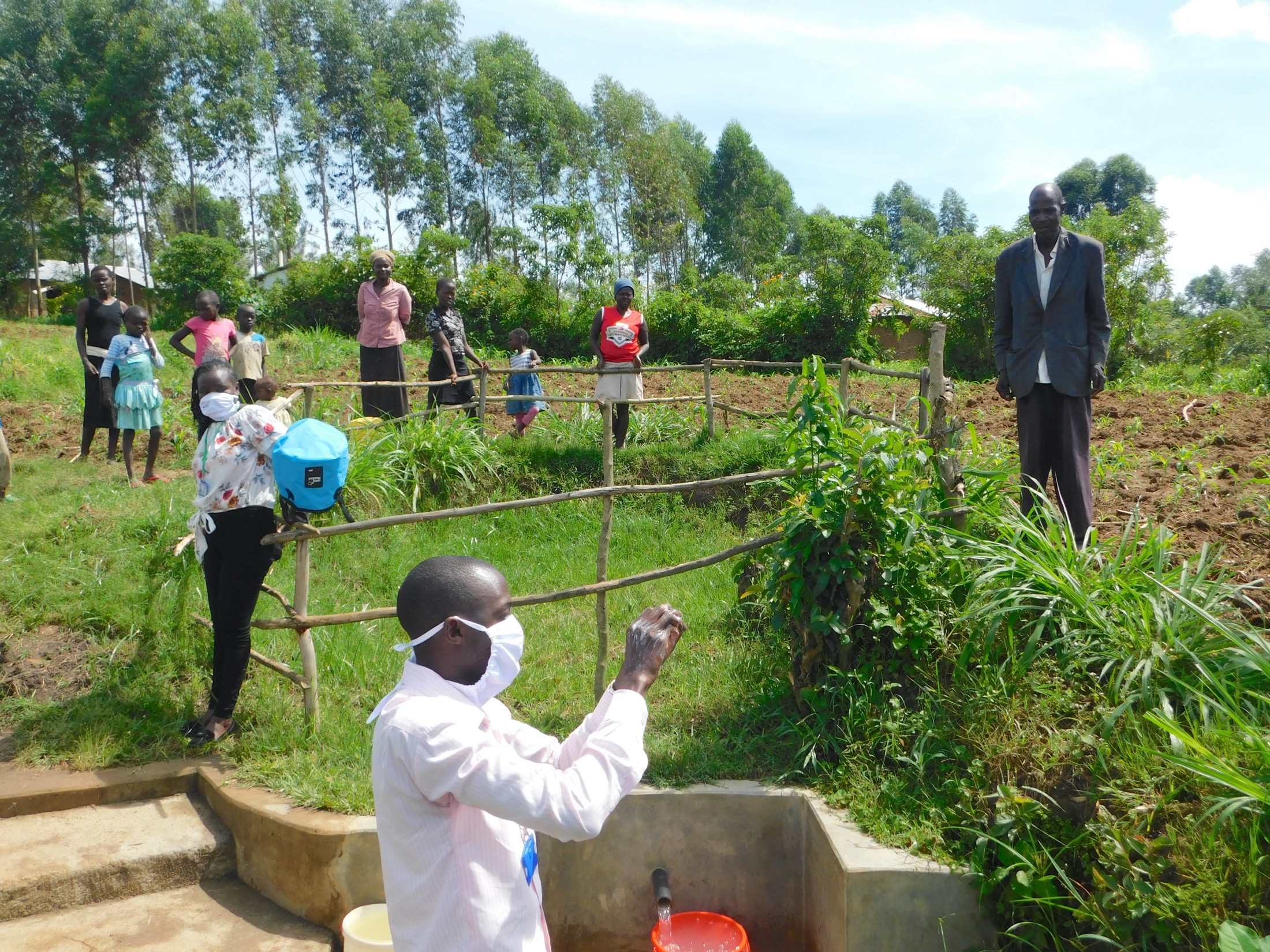
Trainer Protus leading a handwashing demonstration during the COVID-19 sensitization and prevention training at Kweyu Spring
What has been the most helpful part(s) of the COVID-19 sensitization training you received from our team?
“Being advised to: wear a mask whenever I am leaving my home; wearing a mask will help me keep myself and my family safe; handwashing with soap immediately when I get back from outside the gate since I might carry infection to my family and me; it’s important to visit the health facility whenever I am unwell; the water has no COVID-19, and it is safe and clean for drinking.”
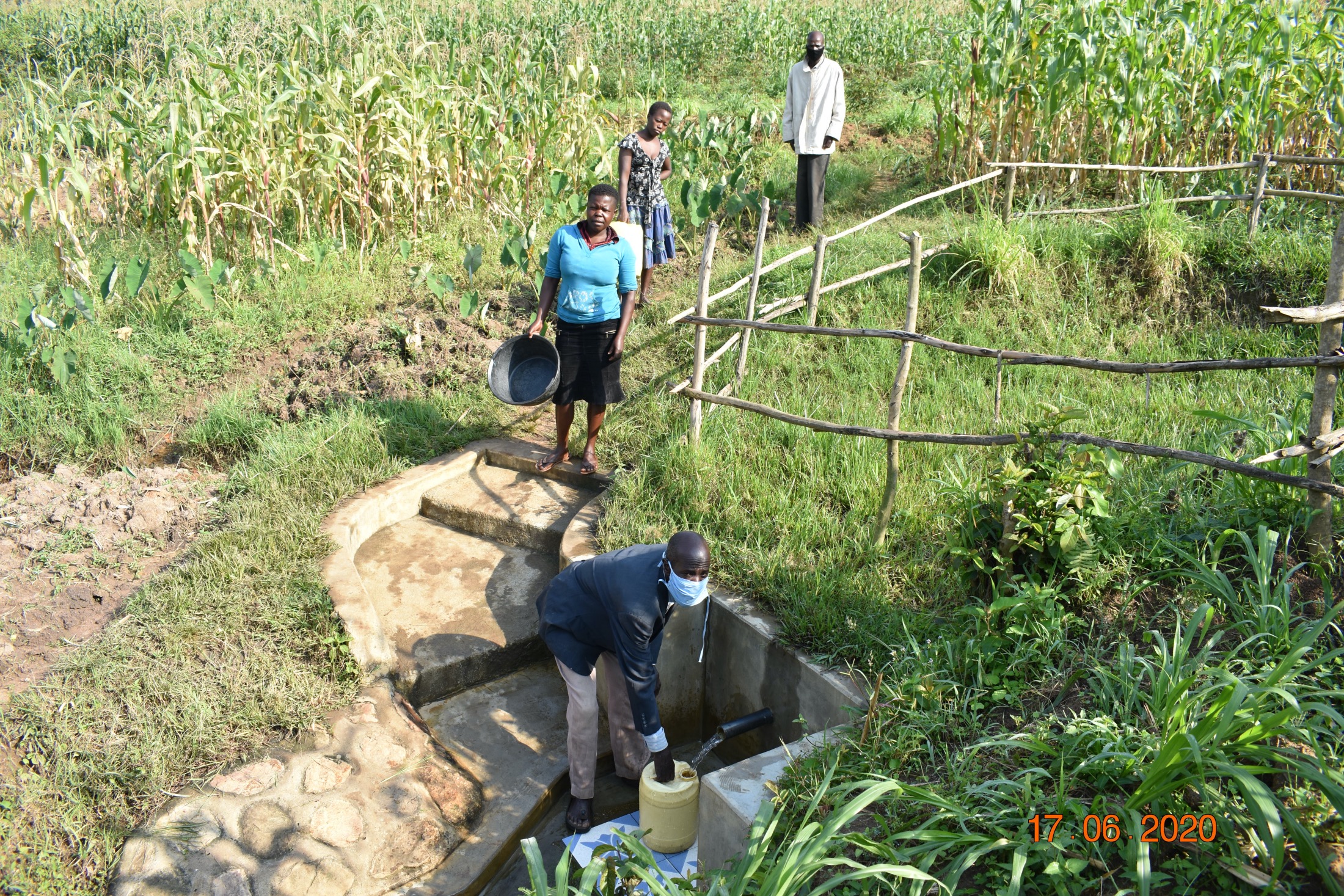
David fetches water, and people line up while observing social distancing at Kweyu Spring.
“We thanked Mr. David Kweyu for making time for us to interview him and for him receiving us with an open heart…It is the season of green maize harvesting, and so we could not escape partaking in the delicious boiled maize which they offered and which we could not turn away from. Oh yes, we definitely undertook in “swallow-ship” with them! It was very generous of them.” – Emmah Nambuye Wekesa
Home More Like ThisTweet